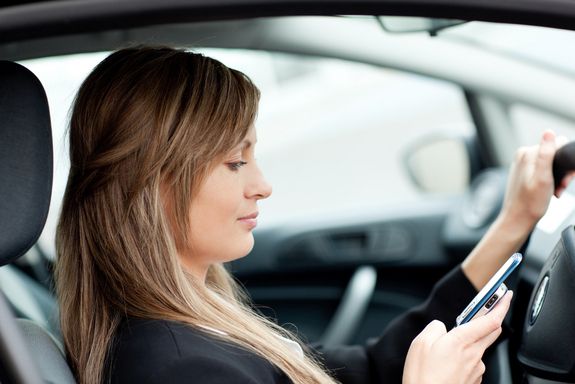
People who multitask all the time may be the worst at doing two things at once, new research suggests.
The findings, based on performances and self-evaluations by about 275 undergraduate students, suggest many people multitask not out of a desire to boost productivity, but because they are easily distracted and can't focus on one activity. And those people turn out to be the worst at juggling different things, the researchers said.
"From a public safety perspective, it's a little alarming that the people who report using a cellphone while driving the most are the persons who are the worst at multitasking," said study co-author David Sanbonmatsu, a psychologist at the University of Utah.
The findings were published today (Jan. 23) in the journal PLoS One.
Distracted lives
In general, the ubiquity of multitasking has increased dramatically in recent decades. But all that multitasking may be reducing overall productivity. For instance, past research showed that juggling multiple things at once lowered work productivity, but made people feel good.
Sanbonmatsu and his colleagues gave the undergraduates a battery of tests and asked them to report how often they multitasked, how good they thought they were at it, and how sensation-seeking or impulsive they were.
Sign up for the Live Science daily newsletter now
Get the world’s most fascinating discoveries delivered straight to your inbox.
They then evaluated the participants' multitasking ability with a tricky mental task that required the students to do simple mathematical calculations while remembering a sequence of letters.
Not surprisingly, the scientists said, most people thought they were better than average at multitasking, and those who thought they were better at it were more likely to report using a cellphone while driving or viewing multiple sources of media at once. [The 10 Most Destructive Human Behaviors]
But those who frequently juggled many things were found to perform the worst at the actual multitasking test. They also were more likely to admit to sensation-seeking and impulsive behavior, which correlates with how easily people get bored and distracted.
The findings suggest that multitasking isn't boosting people's efficiency, Sanbonmatsu told LiveScience.
"People multitask not because it's going to lead to greater productivity, but because they're distractible, and they get sucked into things that are not as important," he said.
Adam Gazzaley, a neuroscientist at the University of California San Francisco, who was not involved in the study, said one limitation of the study was that it couldn't tease out whether people who start out less focused gravitate toward multitasking or whether people's cognitive abilities change as a result of multitasking.
The findings do suggest, however, why the sensation-seekers who multitask the most may engage in risky distracted driving, said Paul Atchley, a researcher at the University of Kansas, who was not involved in the study.
"People who are multitasking are generally less sensitive to risky situations," Atchley said. "This may partly explain why people are engaging in these situations even though they're dangerous."
Follow LiveScience on Twitter@livescience. We're also on Facebook &Google+.

Tia is the managing editor and was previously a senior writer for Live Science. Her work has appeared in Scientific American, Wired.com and other outlets. She holds a master's degree in bioengineering from the University of Washington, a graduate certificate in science writing from UC Santa Cruz and a bachelor's degree in mechanical engineering from the University of Texas at Austin. Tia was part of a team at the Milwaukee Journal Sentinel that published the Empty Cradles series on preterm births, which won multiple awards, including the 2012 Casey Medal for Meritorious Journalism.











